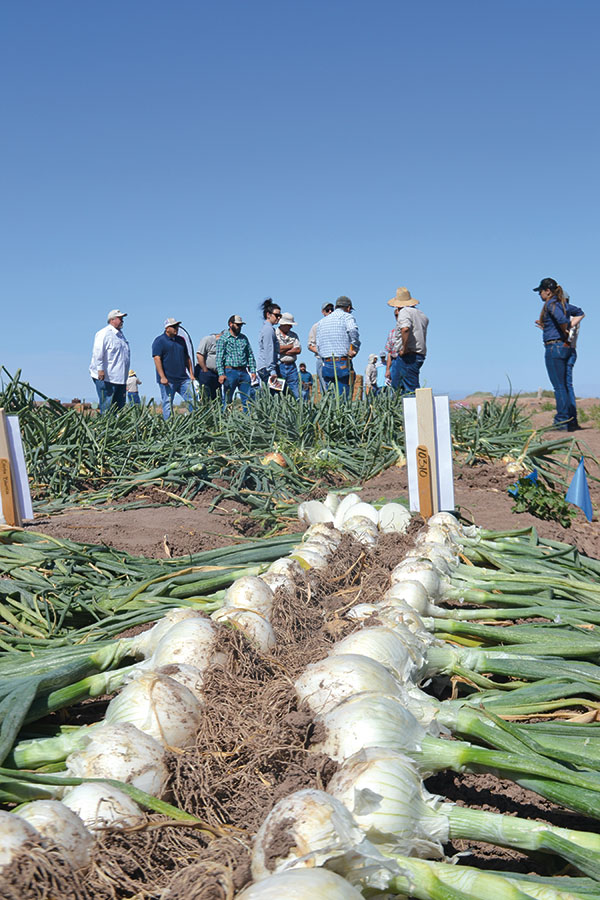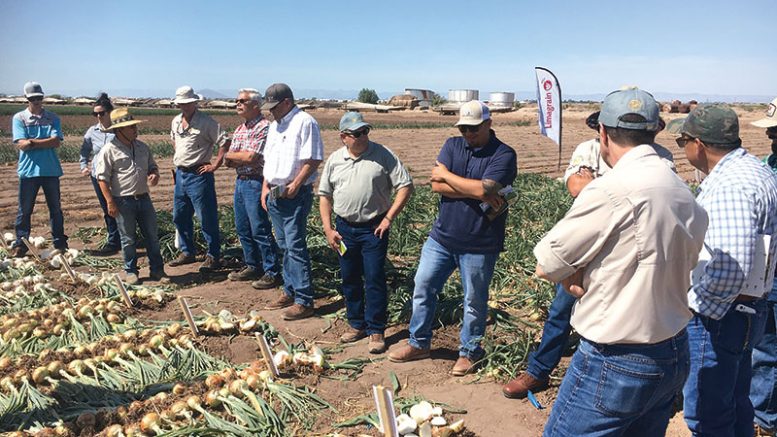Photos courtesy Hazera
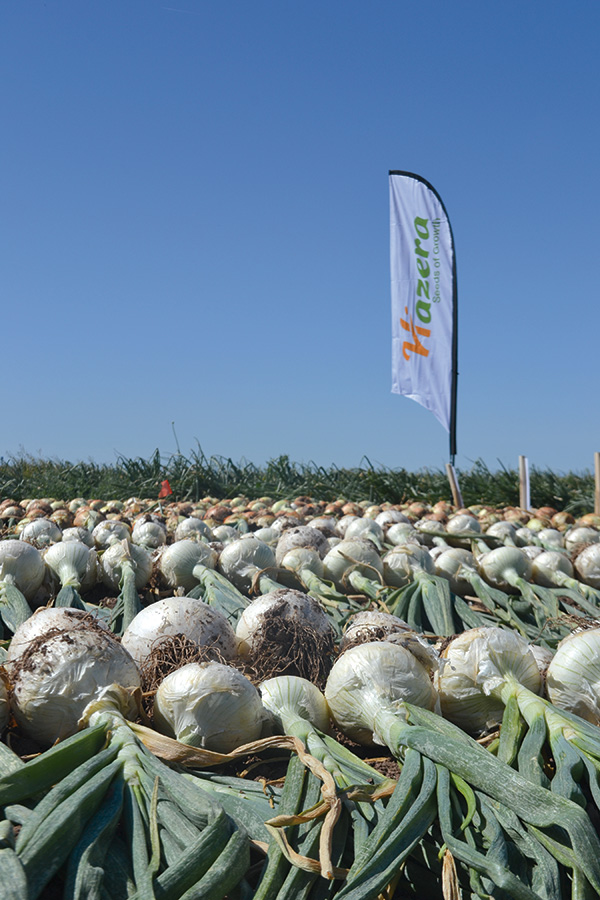
With a nice breeze and temperatures around 90 degrees, Hazera held its first onion field day in Brawley, California, on May 1. Hosted by Fifield Land Company, the field was in excellent condition, which added to the success of the event, according to organizers.
“The excellent conditions of the field made it possible to show our newest short-day onion portfolio for our U.S. customers in an optimal way,” said Jose Arias with Hazera. “We had an excellent number of visitors from many areas in California, but even outside of state, we had visitors coming to our onion field day. The feedback and interaction with these visitors is crucial for us as a seed company, as we use this information to steer our breeding targets. It was great to have this opportunity to have one-on-one talks with growers and distributors.”
During the field day, Hazera showed one of its newest additions to the portfolio. Joelino is a main- to late-season variety with excellent firmness.
“With the addition of this variety to our portfolio, we’re able to offer growers a productive variety that is very suitable for mechanical harvest,” said Ben de Nijs, product manager for Hazera.
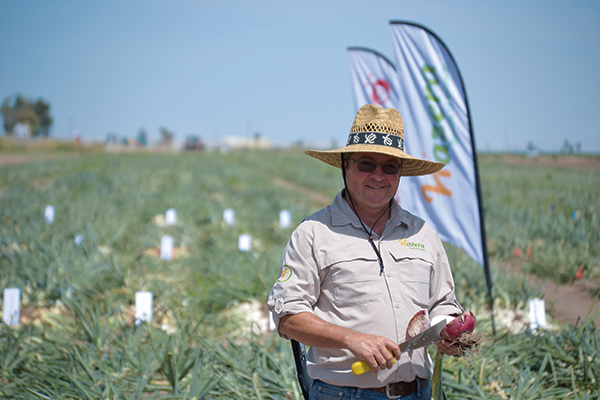
Downy Mildew Resistance
Hazera also showcased a new yellow variety with a unique trait. Hybrid 10256, currently still under number, has full resistance to downy mildew, caused by Peronospora destructor. The downy mildew resistance trait will provide farmers with additional security against big losses, as this disease can cause serious issues in areas with higher humidity and/or higher plant densities. Hybrid 10256, with vigorous tops and a main-season maturity, is still in the last phase of development, but is expected to be added to the portfolio soon. The hybrid will be labeled with the PdR logo, referring to Peronospora destructor resistance. This logo will be used in all advertisement outlets and on the Hazera packages, and will be used for all Hazera’s onion varieties with downy mildew resistance.
“We acquired this trait years ago by backcrossing a wild specie into the Allium cepa – the bulb onion as we know and grow it. Hazera has been using the trait in other day length onions, but so far, we did not have it in short-day onions. We’re currently about to launch this trait in the short-day onion market in the U.S., but we know there are many areas where downy mildew is a problem,” said Pablo Salgado, Hazera’s short-day onion breeder.
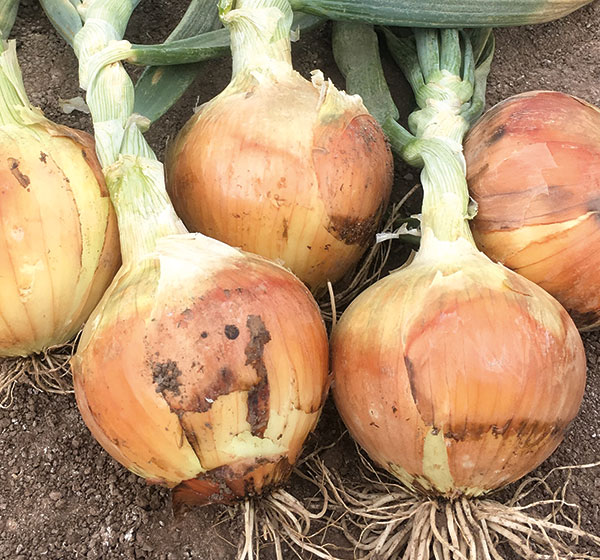
Opportunities for the Imperial Valley
According to field day attendee Robert Bell with Western Onion, it was great to see these new varieties with different maturities.
“I’m excited to see some main- to late-season yellow and white varieties becoming available for the Imperial Valley. This might give growers the opportunity to extend their season a bit longer over here. Especially for the white onions, we see this year a strong demand. Later varieties could benefit very well from this,” Bell said.
He also commented that the new Joelino addition to Hazera’s portfolio looks nice, and it looks like the company is heading in a good direction.
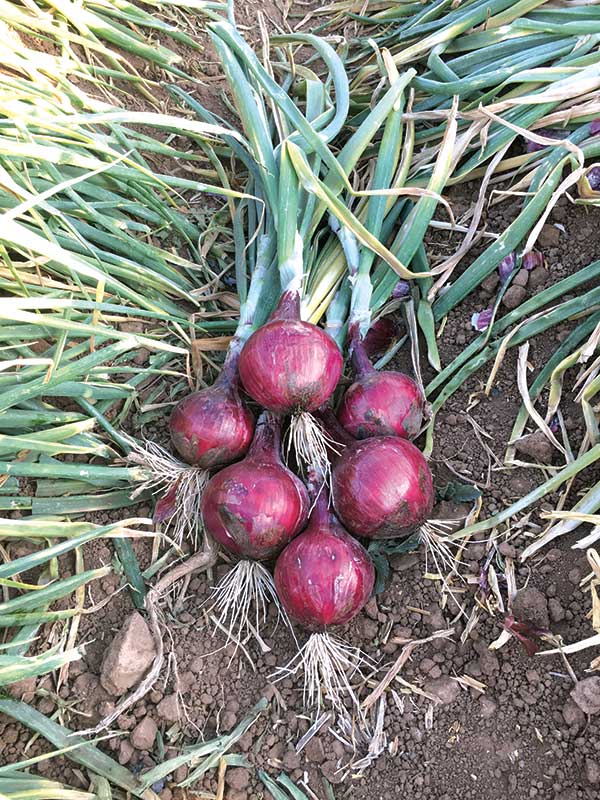
Strong Red Genetics
Hazera has been offering Red Sea and Miss Scarlet in the red onion segment for quite a number of years. Both varieties have found their way to growers in the U.S., Mexico and many other countries.
During the field day, company reps proudly showed one of Hazera’s newest red varieties: hybrid 10415.
“We’re very excited about this new red variety. With its main-season maturity, good globe shape and vigorous tops, it will be a very versatile onion suitable for all short-day red onion growers out there,” de Nijs reported.
Worldwide, the company has seen the total percentage of red onion production increase substantially, and the expectation is that this trend will continue.
“Although the market for red onions is still considered small compared to the yellow onion market in the U.S., we do see it increasing every year. Consumers are using the red onions for salads and sandwiches mainly, and I believe this fresh, healthy industry has been increasing,” de Nijs shared. “Internally, we’re now thinking of a suitable name for this variety. In the coming season, it will be in trials only.”
“With close to 100 visitors at our onion field day, we can consider this to be a great success. Innovation is key for many growers, and we as a seed company also need to keep innovating. Working on a portfolio with varieties with added value for the growers is something Hazera is committed to. Disease resistances, strong root systems, exceptional flavors, improved firmness and internal quality are all characteristics our varieties have been checked on before they get into this stage in the field. Onion breeding in general takes a long time, mainly due to the fact it is a bi-annual crop. On top of that, our hybrids have a long way to go before they’re fully checked and approved by our customers,” de Nijs concluded.
